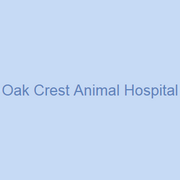
Have you noticed your pet is itchy, they could be dealing with a seasonal allergy. We normally think of allergies as a spring problem, but they can continue into the fall and even bother pets year-round. Here are some of the most common allergies and how a veterinarian can help you reduce your pet’s symptoms.
3 Allergens That Affect Pets During Fall
1. Fleas
The worst time for fleas is actually September, October, and November, not in the spring like many pet owners think. This is caused by extra precipitation during the fall, while temperatures are still relatively warm.
Although flea bites itch for most pets, allergic reactions to flea bites are more severe. Your pet might itch for up to two weeks after a bite. Some symptoms of flea allergies include a rash on their skin, hair loss, small red or pink raised bumps, and constant itching, biting, or grooming.
If you notice your pet displaying these symptoms, contact a veterinarian ASAP. They’ll check your pet for flea bites or residue and can help you access year-round flea medication for your pet. You might also have to clean your house to get rid of fleas that are living there.
2. Ragweed
 Ragweed is a very common allergy in humans, and it can affect pets as well. This allergy tends to start affecting pets in August, and it continues until the first frost of the fall or early winter. If your pet is experiencing a ragweed allergy, they might display symptoms like chewing or licking paws, scratching or biting at their skin, hair loss, sneezing, or runny nose and eyes.
Ragweed is a very common allergy in humans, and it can affect pets as well. This allergy tends to start affecting pets in August, and it continues until the first frost of the fall or early winter. If your pet is experiencing a ragweed allergy, they might display symptoms like chewing or licking paws, scratching or biting at their skin, hair loss, sneezing, or runny nose and eyes.
If you think your pet might have a ragweed allergy, take them to a veterinarian. They can provide antihistamines and anti-inflammatories that are made specifically for dogs and cats. Also, allergies can cause ear and skin infections, so it’s important to get your pet in as soon as possible.
3. Mold
Unfortunately, mold is an allergy that can affect pets year-round, since mold can spread at any time. However, it might be more present during times of high humidity. A mold allergy will usually manifest as a rash, known as atopic dermatitis. You will notice dry skin, scratching, hair loss, and respiratory symptoms like coughing, sneezing, and wheezing.
In order to figure out what type of allergy your pet has, your veterinarian might want to do an allergy test. If your pet has a mold allergy, they might prescribe antihistamines or anti-inflammatories. If you have a mold problem in your house, it will help to get that issue under control, too.
If you’re worried about your dog’s fall allergies, call the experts at Oak Crest Animal Hospital, located in Cincinnati, OH. Their veterinarians will provide state of the art care for your pet, and they can answer any questions about your dog’s well-being. They treat patients like family and have a welcoming office. Visit their website or call (513) 574-3647 to make an appointment for your dog today.
About the Business
Have a question? Ask the experts!
Send your question

